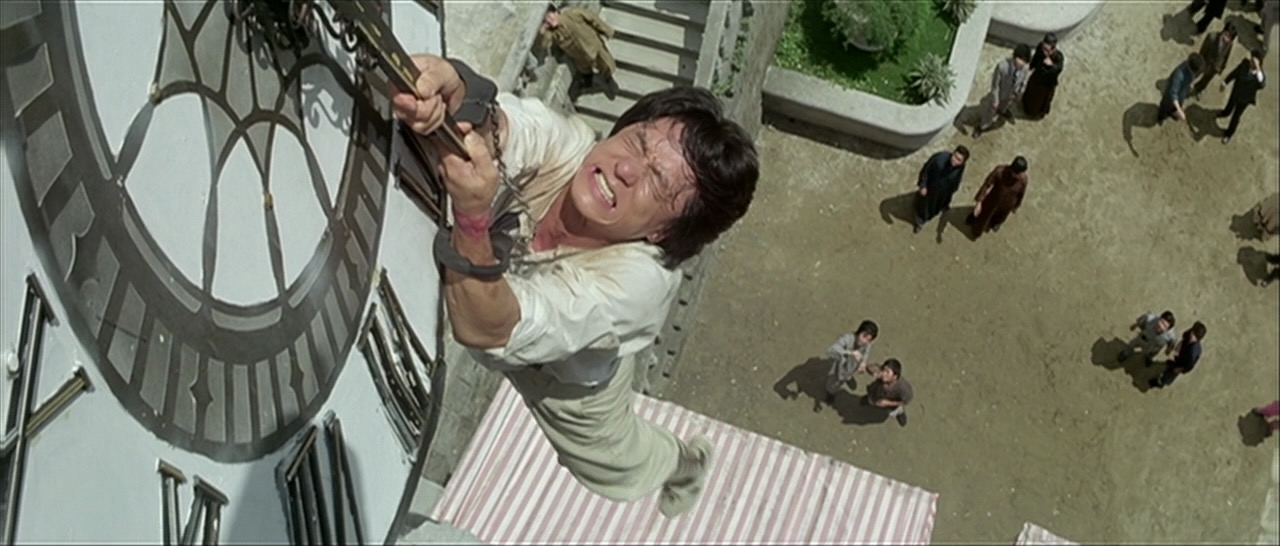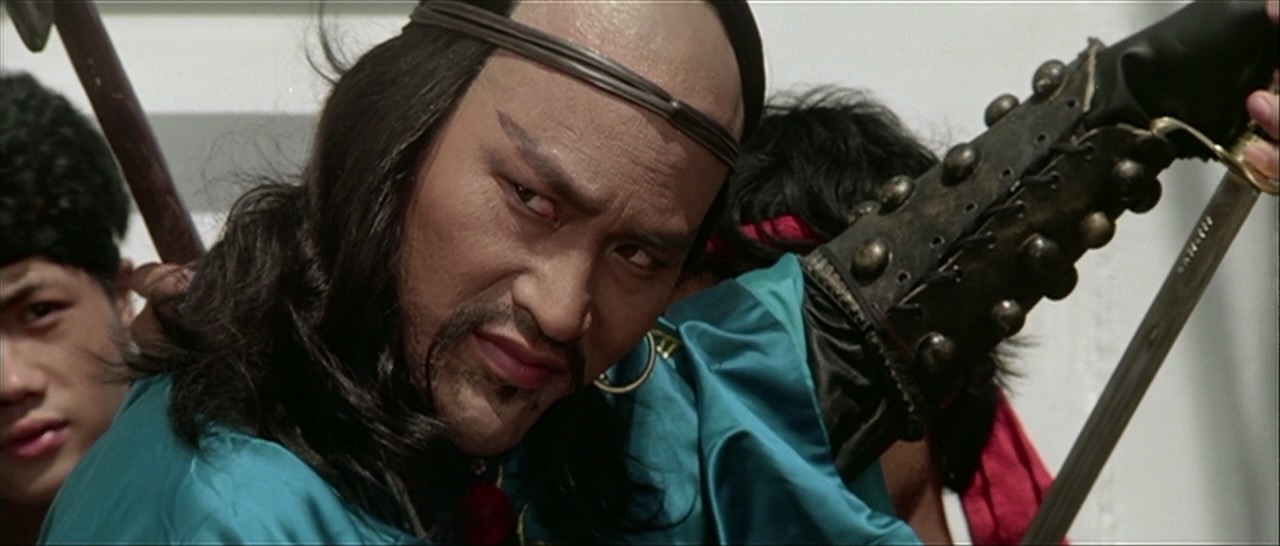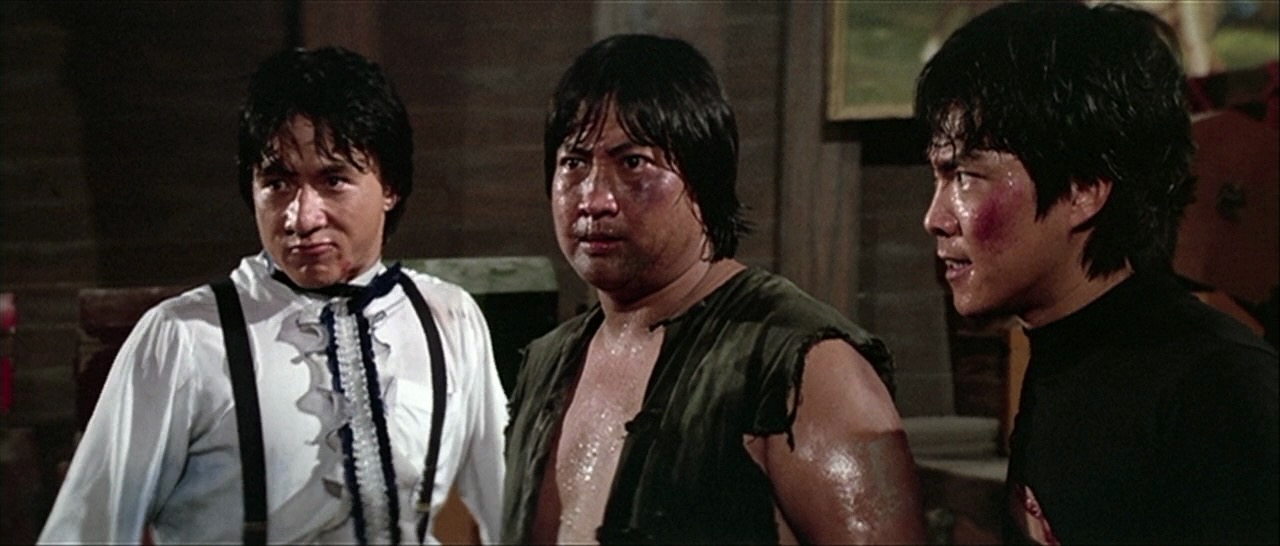There’s a lotta plot here, but Jackie ends up working for his bar-brawl rival Yuen Biao (Rat/Weasel of Eastern Condors) and teaming up with gangster-gambler Sammo to fight corruption and then take on pirates. After a dumbass white admiral gets captured by dread pirate Lo (Dick Wei of Visa to Hell), Chan’s ex-coast-guarders go rogue, beat the shit out of a pirate collaborator to figure out how to contact them, and smuggle Sammo aboard in a barrel. When Chan goes through some gears then hangs from a clock tower, it’s hard to miss the classic silent comedy references, and since this is the week for great bicycle scenes, we get a chase where he beats up guys with a bike in ten different ways.

Jackie was just in Locarno:
I think back to when we made those films, and we had so many problems [on the set]. It would be raining terribly. Something serious not working. On Project A, we got seasick, the [scenes of the] pirates on the sea were so difficult to do… but we kept going, and no matter what, we finished the movie. Then when it came out it was a success, and 40 years later people are still watching it. That’s what I signed up for. You see so many movies, so many directors – and nobody remembers them today. But then a few movies, 100 years later, are still there. At some point, I said to myself: I want to make this kind of movie, no matter how difficult it will be. When I pass away, I want the next generations to say there’s Bruce Lee, there’s Chaplin, there’s Jackie Chan.




















